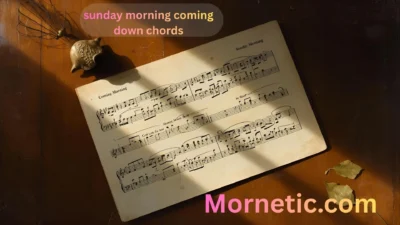If you want to know how to say “good morning” in Portuguese, the direct translation is “Bom dia.” This friendly greeting is your essential key to starting conversations respectfully and warmly in any Portuguese-speaking country, from the bustling streets of Rio to the charming cafes of Lisbon.
But language is more than just direct translations. Mastering a greeting means understanding the culture, pronunciation, and the many other phrases that surround it. This guide will not only teach you to say “Bom dia” with confidence but will also immerse you in the rich tapestry of Portuguese greetings, ensuring you can connect authentically with over 220 million speakers worldwide.
Why Learning Portuguese Greetings Matters More Than You Think
Portuguese is the sixth most-spoken language globally, and a perfect greeting does more than just convey words; it builds rapport, shows respect, and opens the door to meaningful interactions. In Portuguese and Brazilian culture, taking a moment to offer a proper greeting is not a mere formality—it’s a valued part of human connection. Whether you’re planning a trip, expanding your business, or simply engaging with a new culture, starting with “Bom dia” is the first step in a rewarding language-learning journey. The grammar and sentence structures are often more simplified than English, and many words are cognates, making it an accessible language for English speakers to pick up.
The Perfect Pronunciation of “Bom Dia”: A Step-by-Step Guide
Saying the words correctly is crucial to being understood. Let’s break down “Bom dia” syllable by syllable.
- Bom: Pronounced like “bohng” in European Portuguese or “bohn” in Brazilian Portuguese. The key is the soft, nasalized ending on the “m,” which is not fully pronounced with closed lips.
- Dia: In Brazil, this is often said like “jee-ah,” while in Portugal, it sounds more like “dee-ah”.
The stress falls on the second word: bom DIa. Put it all together, and it sounds like “bohng DEE-ah” (in Portugal) or “bohn JEE-ah” (in Brazil).
Pro Tip: Listening to native speakers on platforms like Forvo or using language apps with speech recognition can be invaluable for perfecting your pronunciation by comparing your voice to native speakers in real-time.
Your Daily Greeting Toolkit: Beyond “Good Morning”
“Bom dia” isn’t used in a vacuum. Portuguese uses specific greetings for different times of the day, and knowing when to switch is a key part of sounding natural.
- Bom Dia 🤗: Use this from sunrise until noon (12:00 PM). It literally means “Good Day.”
- Boa Tarde ☀️: This is your go-to from noon until sunset or early evening. It translates to “Good Afternoon.”
- Boa Noite 🌙: Use this from evening until the next morning. Crucially, it serves a double purpose: it can be used for both “good evening” (as a hello) and “good night” (as a goodbye).
The Essential Companion Greetings for Any Conversation
To have a fluid conversation, you’ll need more than just time-based greetings. Here are the other must-know words and phrases.
The Universal “Hello” and the Casual “Hi”
- Olá: This is the standard, go-to word for “hello.” It’s friendly yet can work in most social situations. Don’t confuse it with the Spanish “hola”—in Portuguese, the stress is on the second syllable (oh-LAH).
- Oi!: This is a very friendly and informal “hi!” It’s extremely common in Brazil, used primarily with friends, family, and close colleagues. In Portugal, “Olá” is generally preferred.
How to Ask “How Are You?” Like a Native
Asking about someone’s well-being is a standard and expected part of greeting someone.
- Tudo bem?: This is the most common and versatile way to ask “How are you?” Literally meaning “Everything well?”, it’s suitable for both formal and informal situations. A typical response is “Tudo bem!” or just “Tudo!”.
- Como está você?: A more literal translation of “How are you?” It’s slightly more formal than “Tudo bem?”.
- Como vai?: Meaning “How’s it going?”, this is another excellent all-purpose option.
- E aí?: This is a very casual slang for “What’s up?” used predominantly in Brazil among friends and the younger generation.
Friendly and Slang Greetings You’ll Hear on the Street
- Alô: Reserved exclusively for answering the telephone, much like the English “hello”.
- Opa: A fun, informal interjection that means “Hey!” or “Whoa!” It’s often used to express pleasant surprise when bumping into someone.
Navigating the Dialects: European vs. Brazilian Portuguese Greetings
While “Bom dia” is universal, there are some notable variations between the two main dialects you should be aware of.
- General “Hello”: In Portugal, you’ll hear “Olá” more frequently. In Brazil, the informal “Oi!” is ubiquitous.
- Pronunciation: The word “dia” is a key differentiator. In Portugal, it’s a clear “dee-ah,” while in Brazil, it softens to a “jee-ah” sound.
- Phone Etiquette: In Brazil, you answer the phone with “Alô.” In Portugal, it’s more common to say “Está lá?” (literally, “Is it there?”).
- Cultural Tone: European Portuguese interactions can start with slightly more formal conventions, while Brazilian greetings are often perceived as more informal and relaxed from the start.
Real-Life Portuguese: Sample Conversation Starters
Seeing these phrases in action will help you understand their natural flow.
Scenario 1: A Formal Morning Greeting
- You: Bom dia, senhor. (Good morning, sir.)
- Colleague: Bom dia. Tudo bem? (Good morning. All good?)
- You: Tudo bem, obrigado/obrigada. E você? (All good, thank you. And you?) Note: Use “obrigado” if male, “obrigada” if female.
Scenario 2: An Informal Afternoon Chat with a Friend
- You: Oi! E aí? (Hi! What’s up?)
- Friend: Tudo! Boa tarde, vamos sair? (All good! Good afternoon, shall we go out?)
- You: Vamos lá! (Let’s go!)
Cultural Etiquette: The Do’s and Don’ts of Portuguese Greetings
- DO use “Bom dia,” “Boa tarde,” and “Boa noite” when entering small shops, cafes, or someone’s home. It’s considered polite and expected.
- DO use the formal “o senhor” (sir) or “a senhora” (ma’am) when greeting someone older or in a professional context to show respect.
- DON’T use the casual “E aí?” or “Oi” with someone you’ve just met or in a formal setting. Start with “Olá” or “Bom dia” until you gauge the level of formality.
- DON’T be afraid to make mistakes! Native speakers almost always appreciate the effort and will be happy to help you.
Powerful Strategies to Practice and Master Your Greetings
- Practice Out Loud: The key to good pronunciation is repetition. Use the pronunciation guides above and repeat the phrases daily.
- Leverage Language Apps: Platforms like Duolingo, Memrise, and Babbel offer structured lessons and pronunciation tools.
- Immerse Yourself with Native Media: Watch Brazilian films, Portuguese TV shows, or listen to music from artists like Anitta (Brazil) or Dino D’Santiago (Portugal) to hear the greetings used in their natural context.
- Find a Language Partner: Use language exchange apps like Tandem or HelloTalk to practice greetings and short conversations with native speakers.
Expressing Affection: How to Say “Good Morning My Love” and More
To greet a loved one in the morning, you can say:
- Bom dia, meu amor. (Good morning, my love.)
- Bom dia, querida. (Good morning, dear – to a female.)
- Bom dia, querido. (Good morning, dear – to a male.)
Frequently Asked Questions About Portuguese Greetings
How do you politely reply to “Bom dia”?
A simple and polite reply is with another “Bom dia!” You can also follow it with “Tudo bem?” to continue the conversation.
Can “Boa noite” really be used as a greeting?
Yes! This is a key difference from English. “Boa noite” is used both as a greeting (good evening) when you meet someone at night and as a farewell (good night) when you or they are leaving to go to sleep.
What is the real difference between “Olá” and “Oi”?
“Olá” is a standard, neutral “hello” suitable for most situations. “Oi” is a very informal “hi,” best used with friends, family, and in casual settings. In Brazil, “Oi” is extremely common, while in Portugal, “Olá” is more prevalent.
Is Portuguese pronunciation difficult for English speakers?
It can have its challenges, like the nasal sounds in “bom” and “bem,” but it is generally considered more phonetic than English. With consistent practice, most learners can achieve clear and confident pronunciation.
Your Next Steps in the Portuguese Language
Learning to say “Bom dia” is the perfect first step into the vibrant world of the Portuguese language. It’s more than just a phrase—it’s a key that unlocks genuine connections with people from Lisbon to Rio de Janeiro. By mastering this greeting and its surrounding phrases, you’re not just memorizing words; you’re showing respect for the culture and opening yourself up to incredible new experiences. So, to all of you, we say: Bom dia, boa sorte, e até logo! (Good morning, good luck, and see you later!)

Grace is a lifestyle writer from California who loves starting mornings with positivity. At Mornetic, she shares uplifting quotes and cheerful messages to brighten your day.




